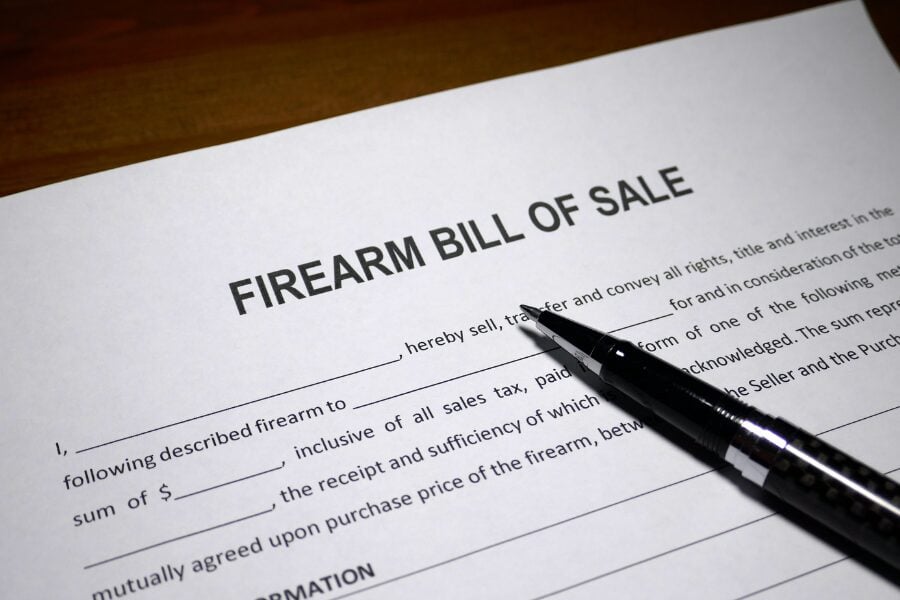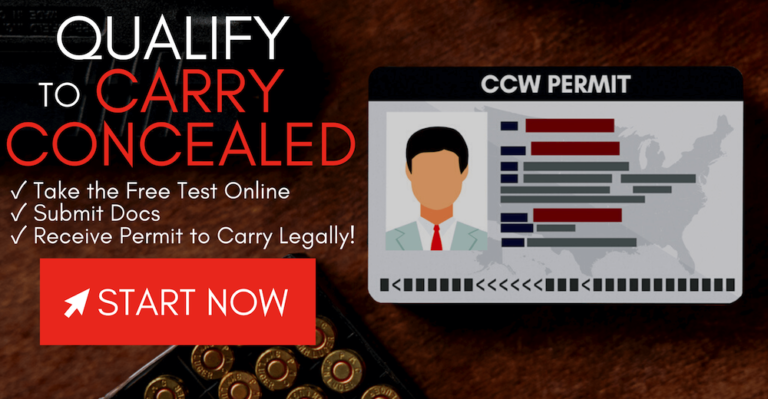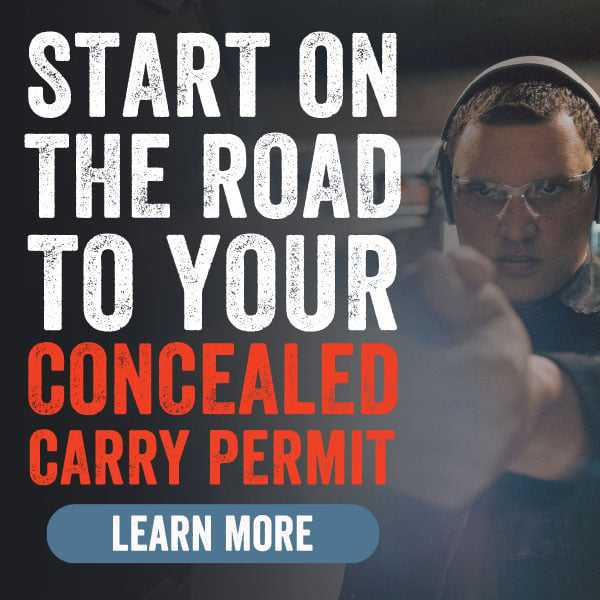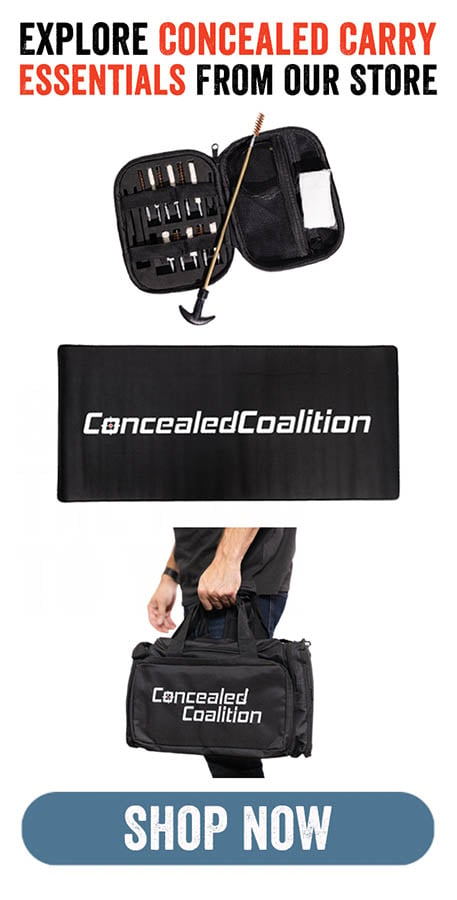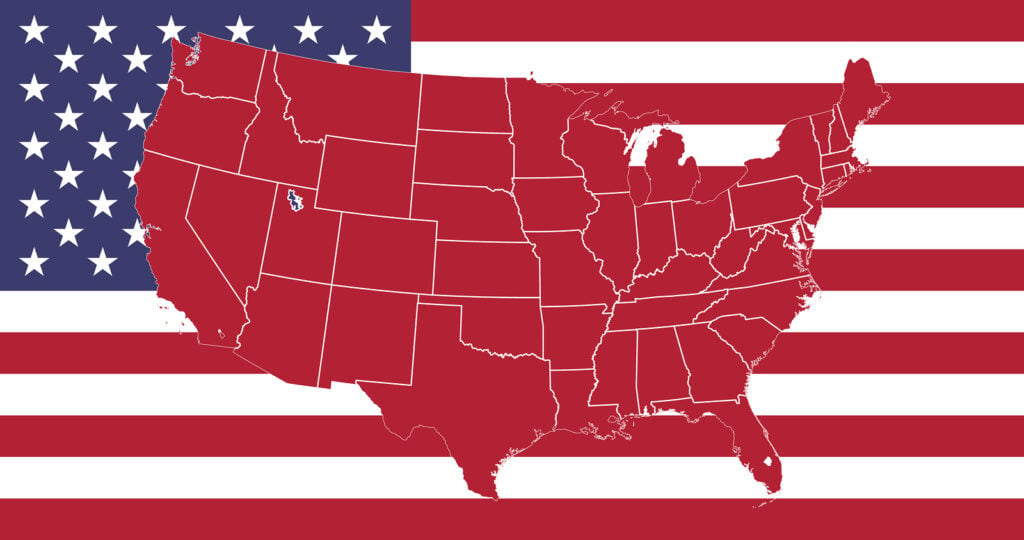If you’re wondering “What disqualifies me from buying a gun?”, the answer is that federal law prohibits firearm purchases for individuals with certain criminal convictions, mental health rulings, or other disqualifying factors — and state laws can add additional restrictions. The best way to ensure compliance is to understand both the federal baseline and your state-specific rules.
At Concealed Coalition, we not only train responsible gun owners on safe handling and use, but also on the laws that determine who may legally own a firearm. Below, we’ll break down the main disqualifiers.
Federal Disqualifications (18 U.S.C. § 922(g))
Under federal law, you are prohibited from buying or owning a firearm if you meet any of the following criteria:
| Disqualifying Factor | Explanation |
| Felony Convictions | A conviction for any crime punishable by imprisonment for more than one year disqualifies you from firearm ownership. |
| Pending Felony Indictment | Being under indictment for a felony can temporarily disqualify you from purchasing. |
| Fugitive from Justice | Anyone actively fleeing prosecution or avoiding a court order. |
| Controlled Substances | Unlawful users of or addicts to controlled substances, including federally banned drugs like marijuana (even if legal at the state level). |
| Mental Health Rulings | Individuals adjudicated as mentally defective or committed to a mental institution involuntarily. |
| Illegal Immigration Status | Those unlawfully in the U.S. cannot purchase firearms. |
| Military Dishonorable Discharge | Veterans dishonorably discharged are prohibited from gun ownership. |
| Renounced Citizenship | U.S. citizens who have formally renounced citizenship cannot own firearms. |
| Restraining Orders | Individuals subject to qualifying restraining or protective orders, especially in domestic violence cases. |
| Domestic Violence Misdemeanors | Even certain misdemeanor convictions can result in a lifetime firearm ban. |
| Age Restrictions | Federal law prohibits handgun purchases for those under 21 and long gun purchases for those under 18. |
State-Specific Disqualifications
Beyond federal regulations, individual states may enforce stricter disqualification criteria for firearm ownership. Key examples include:
- Alcohol-related convictions: These can lead to disqualification in certain states.
- Violent misdemeanors: Some states impose restrictions for specific offenses.
- Protective orders: State laws may extend beyond federal guidelines, covering a wider range of situations.
- Waiting periods and background checks: Requirements vary by state, potentially leading to temporary disqualifications for buyers.
To determine the rules in your state, consult the Concealed Coalition Reciprocity Map. This resource offers a detailed, state-by-state overview of firearm regulations and disqualifications, ensuring you stay informed.
How Background Checks Uphold Firearm Regulations
The National Instant Criminal Background Check System (NICS) plays a crucial role in ensuring only eligible individuals can purchase firearms from licensed dealers. If a background check reveals any disqualifying factors, the transaction is denied.
Key Enforcement Mechanisms:
NICS Delays
Occasionally, firearm purchases may be delayed as the NICS system conducts a more in-depth review. These delays often occur due to incomplete records or the need for additional verification to confirm a buyer’s eligibility.
State-Level Contributions
Many states enhance the NICS database by providing additional records such as mental health histories, restraining orders, or felony charges that may not appear in federal databases. These contributions strengthen the system and ensure a more comprehensive background check.
Private Sales and Universal Background Checks
In states with universal background check laws, all firearm sales and transfers—including private transactions—must go through the NICS system. This process closes loopholes, preventing prohibited individuals from acquiring firearms through unregulated private sales.
By leveraging NICS and state data, background checks remain a vital tool in enforcing firearm regulations and promoting public safety.
Temporary vs. Permanent Disqualifications
Not all disqualifications are permanent.
- Temporary Disqualifications: These apply to situations such as pending indictments, active restraining orders, or ongoing investigations involving specific drug-related offenses. These restrictions are lifted once the legal matters are resolved or further action is taken.
- Permanent Disqualifications: These involve more severe offenses, including felony convictions, dishonorable military discharges, renunciation of U.S. citizenship, or misdemeanor convictions for domestic violence. Such offenses result in the permanent loss of certain rights, reflecting their serious nature.
In some cases, individuals may regain their rights through legal petitions, though eligibility and processes vary significantly by state.
Practical Scenarios
Here are a few examples to consider:
- Scenario 1: A marijuana user in a legalized state – Despite state legalization, federal law still classifies marijuana as a controlled substance, meaning use remains federally prohibited.
- Scenario 2: A restraining order has been lifted – In such cases, firearm rights may be reinstated, but only after a thorough review process.
- Scenario 3: A felon who has completed their sentence – In certain states, individuals may have their rights restored following a designated waiting period and under specific conditions.
Concealed Coalition: Promoting Responsible Firearm Ownership
At the Concealed Coalition, we don’t just teach firearm safety—we empower you with the legal knowledge essential for responsible carrying.
Our training goes beyond the basics, covering critical topics like federal laws that apply nationwide, state-specific regulations that often differ significantly, and best practices to avoid accidental violations. Understanding these legal requirements is as vital as honing your firearm skills.
Each course is tailored to real-world scenarios and meets unique state-by-state requirements, ensuring you develop both practical expertise and a solid grasp of the law. With Concealed Coalition, you’ll gain the confidence and knowledge to carry your firearm responsibly and safely.
FAQs
1. Can a misdemeanor disqualify me from buying a gun?
Yes, in certain cases. While most misdemeanors do not trigger a lifetime prohibition, misdemeanor domestic violence convictions do. Under federal law, anyone convicted of domestic violence — even if it was not a felony — is permanently prohibited from purchasing or possessing firearms.
2. Does marijuana use disqualify me from owning a firearm?
Yes, under federal law. Even if marijuana is legal in your state, the federal government still classifies it as a controlled substance. This means unlawful users of or addicts to marijuana (or any other controlled substance) are prohibited from firearm ownership.
3. What mental health issues prevent me from buying a gun?
You may be prohibited if you have been:
- Adjudicated as “mentally defective” by a court.
- Involuntarily committed to a mental institution.
This rule applies when a lawful authority finds an individual is a danger to themselves or others. Voluntary treatment, however, does not usually disqualify someone.
4. Can I buy a gun if I have a restraining order?
If the restraining order qualifies under federal law — typically those involving harassment, stalking, or threats against an intimate partner or child — then you cannot purchase or possess a firearm. The restriction lasts as long as the order is in effect.
5. Can someone with a dishonorable military discharge own a gun?
No. A dishonorable discharge from the U.S. Armed Forces is a lifetime federal disqualifier. Other types of military discharges (such as general or other-than-honorable) do not necessarily disqualify you.
6. At what age can I legally buy a gun?
Federal law sets minimum age requirements:
- 18 years old for rifles and shotguns.
- 21 years old for handguns.
Some states impose stricter rules, so always check your state’s laws using Concealed Coalition’s Reciprocity Map.
7. Can my gun rights ever be restored after disqualification?
In some cases, yes. Certain states allow individuals to petition for the restoration of firearm rights after a waiting period or through a specific legal process. Felonies, domestic violence convictions, or mental health rulings are often harder to restore, but it depends on state law.
8. What’s the best way to know if I am eligible to buy a gun?
The most reliable method is through the NICS background check performed by licensed firearm dealers. You should also review your state-specific rules, since some states impose additional disqualifiers. Concealed Coalition’s Reciprocity Map is an excellent tool to confirm where you stand.
Key Takeaway
What can disqualify you from purchasing a firearm?
- Federal law prohibits gun ownership for individuals with felony convictions, certain mental health adjudications, restraining orders, controlled substance abuse, and other specific conditions.
- State laws impose additional restrictions, which can vary greatly depending on where you live.
To ensure compliance, it’s essential to stay informed. Use our Reciprocity Maps to review state-specific firearm disqualifications and enroll in certified training programs to fully understand your rights and responsibilities.
